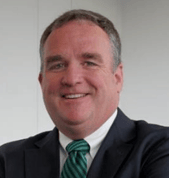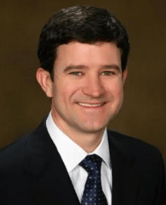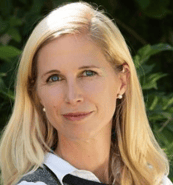March 20, 2023
2023 SBER Q1 Symposium: Sustainability Strategy Leadership & Corporate Global Decarbonization
SR Inc held our first quarterly 2023 Executive Symposium on March 16th at simultaneous live events at the Art Hotel in Denver, CO and at the new Pegasystems campus in Waltham, MA, as well as virtually. Member-Clients in attendance were engaged on two major topics, “Sustainability Strategy Leadership” and “Corporate Global Decarbonization.”
The first session, moderated by SR Inc CEO Jim Boyle, addressed actionable frameworks for corporate sustainability leadership, followed by presented SR Inc research on regulatory and reporting frameworks (SEC, EU CSRD, TCFD, and SBTi). Key takeaways include:
- UN Secretary General António Guterres has observed that a failure to align with the 1.5°C ecological limit, aka the path we are currently on, is “immoral and suicidal.” As such, it is an assault on human dignity.
- The prioritization of the always mounting, always more urgent, nature-, society-, and market-shaping challenge of human-caused climate breakdown is necessary. If only to enable the possibility of sufficient time to address other global challenges.
- As described in our blog post “A Dignity First Corporate Demand for Climate Action,” an enterprise’s most meaningful contribution to responding responsibly to human-caused climate and environmental breakdown can come from its contribution to local, state, national, and international policies that align with relevant UN guidelines.
- In a manner similar to Forced Labor, a dignity-first approach to human-caused climate and environmental breakdown recognizes that an enterprise can fairly demand all parties with whom it does business must commit to aligning with relevant UN agreements and guidance.
- To be responsible in responding to human-caused climate & environmental breakdown, enterprises can demand that the governing authorities that regulate their markets at a local, regional, national, and international level commit to compliance with relevant UN agreements and guidance.
- The majority of Member-Clients will not need to disclose in accordance with CSRD until 2026 or 2029, but should begin understanding the key frameworks that it will employ (i.e. EU Taxonomy) now, as other reporting organizations (e.g. CDP) begin aligning this year.
- As both the SEC and CSRD mandatory disclosure rules align with TCFD, it is best practice for companies to consider undertaking scenario analysis rooted in well established IPCC scenarios.
- The SBTi submittal process, since the launch of the Net Zero Standard, has been marred by extensive timing delays and requires thorough preparation to have as efficient of a target validation review process as possible.

This session also included presentations from two Member Executives, our Waltham host Vice President of Real Estate & Facilities Dan Ryan, and Sr. Manager of Global Energy Management and Sustainability at Cisco Andy Smith.
Dan shared details of Pegasystems’ sustainability program journey, featuring insights on how a corporate impact report can transform your communication stream on sustainability initiatives with your customers, and the importance of establishing a strong internal, cross-functional team to tackle different aspects (data collection, marketing, reporting) of your ESG strategy. Dan also shared that Pegasystems has just committed to the Science Based Targets Initiative (SBTi), and will be working towards submitting their targets in the coming months.

Andy then delved into Cisco’s Science-Based Targets (SBTs), which were approved in summer 2022. Cisco’s SBTs include both near-term targets and long-term Net Zero targets, and Andy shared context in regard to the submission process, including timeline and recommendations for third-party assurance. He also provided details on Cisco’s plans to achieve its set targets and specific perspective on how to begin tackling scope 3 emissions reductions. Cisco is pursuing an absolute reduction in scope 3 emissions for both its near- and long-term targets, rather than the qualitative supplier engagement goal which is allowed by SBTi for the near-term, in order to affect the greatest impact. They will be focusing their reduction efforts largely on Category 11, Use of Sold Products, and innovative methods to decarbonize their products upstream.

The second session, “Corporate Global Decarbonization,” discussed the development of a corporate decarbonization roadmap. SR Inc’s 12-step recommended process includes detailed best-practice for footprinting your baseline, evaluating decarbonization strategies, and a specific spotlight on opportunities to address scope 3. Member-Clients in attendance then heard from Member Executive Nell Triplett, Director of Sustainability at Juniper Networks, about the company’s own evolving decarbonization strategy. Nell shared Juniper’s approach to evaluating renewable energy options to address their scope 2 emissions, wherein Juniper found that VPPAs present the most high impact and financially positive option. Nell additionally shared a template for how to build and present the business case for decarbonization investment to upper management, which is vital to assure leadership that due diligence has been completed in order to reach the selected recommendations.
Takeaways from this session include:
- Make sure a proper governance structure is in place to drive climate action.
- Focus on nailing down your own operations (scope 1 and 2) before tackling scope 3.
- Ensure you have a comprehensive and accurate emissions footprint while developing a decarbonization roadmap.
- Involve a cross-functional team when considering scope 1 and 2 mitigation options.
- Ensure your decision-making structure is clear with scope 1 and 2 mitigation options.
- Make sure you have developed a solid financial business case to support decarbonization proposals.
- Only seek buy-in from senior management once you’re fully ready (after pressure testing).
- Manage expectations, under-promise on timing, and then try to over-deliver.
The presentations from the “Sustainability Strategy Leadership” and “Getting Net-Zero Done” sessions can both be found in the SR Inc Digital Library, accessible exclusively to Member-Client executives. Member-Clients can additionally access the newly developed SR Inc Member Advisories The Member Client Guide to the EU Taxonomy and SBTi Submittal Process Overview on the Digital Library. Please contact info@sustainround.com to learn more about gaining access to the full extent of the SR Inc Digital Library.
SR Inc looks forward to deepening our Member-Client based guidance on global ESG leadership throughout 2023, and look forward to reconvening next at our Q2 Symposium on June 22nd in both Boston & San Francisco.
